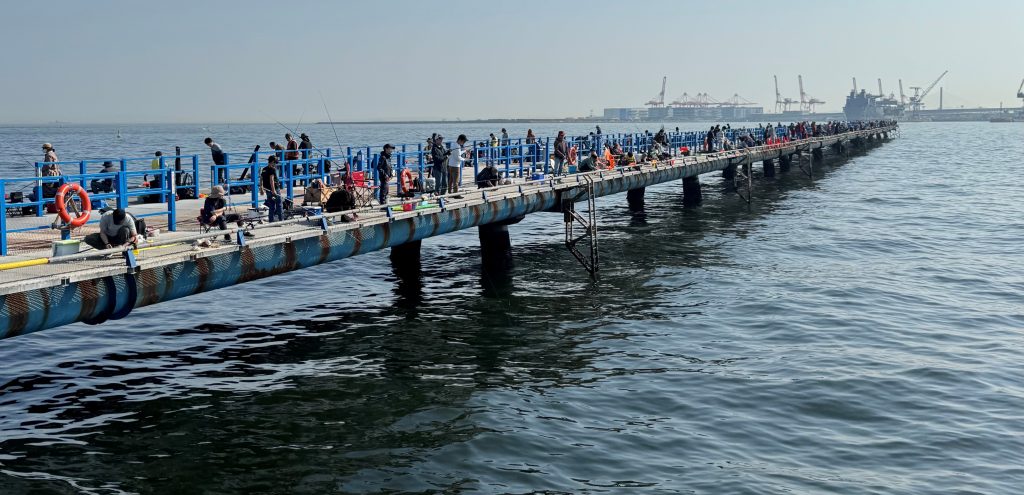It was a lazy Sunday yesterday, and we decided to take a short trip to the Honmoku Fishing Pier, just a few minutes by bus from our place, walkable with a bit of effort, but I didn’t have that bit in me yesterday.
We weren’t going to fish. I haven’t been fishing since I was about 16, and all of my fishing trips were on fishing boats in the Long Island Sound or off the South shore of Long Island with my dad. I have never fished from a pier.

The fishing pier was packed, including couples out on a fishing date, so to speak, and parents with children. We spent about two hours watching people catch fish of various sizes, mostly disappointingly small and probably requiring their release.
While we were relaxing watching other people fish, we got to see a number of largish cargo ships pass to the East from Yokohama. None were close enough to be identified, but technology came to the rescue, in the form of the Vessel Finder website.
This website provides a map with all ships with the required equipment turned on. Ships involved in arms shipments to and fuel shipments from a certain aggressor state apparently switch off that equipment. But I digress.
One of the ships was the Oberon, a vehicle carrier headed to Kobe (as indicated by the VF website).

The availability of this information on ships reminds me of the time some years ago when I was left with not much to do on an interpreting assignment in Evansville, Indiana. The witness in a patent case I was supposed to be interpreting for was never called, and I spent a week there with not much to do (during the daytime, anyway) but look out my hotel window at the barges moving slowly up and down the Ohio River, on which the hotel was situated.
I was fully paid for all days, and, while I was cooling my heels in my hotel room waiting for the call that never came, I discovered a service similar to VF that indicated the departure times, destinations and arrival times of barges carrying exciting things like coal up and down the Ohio River. Such is the exciting life of a litigation interpreter. But I digress.
